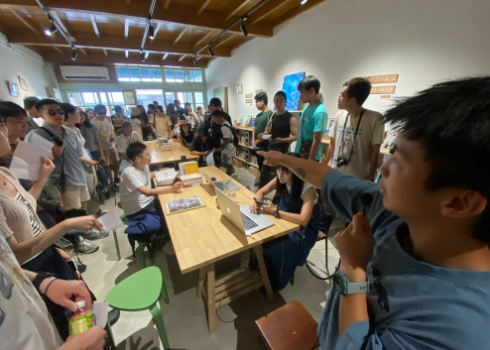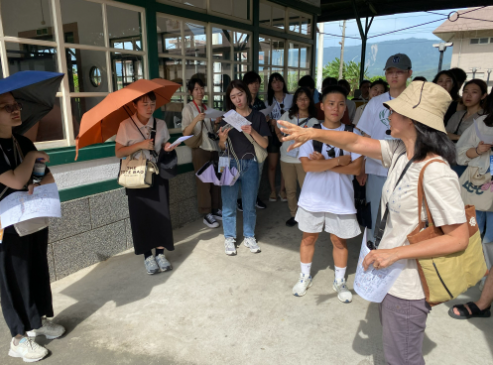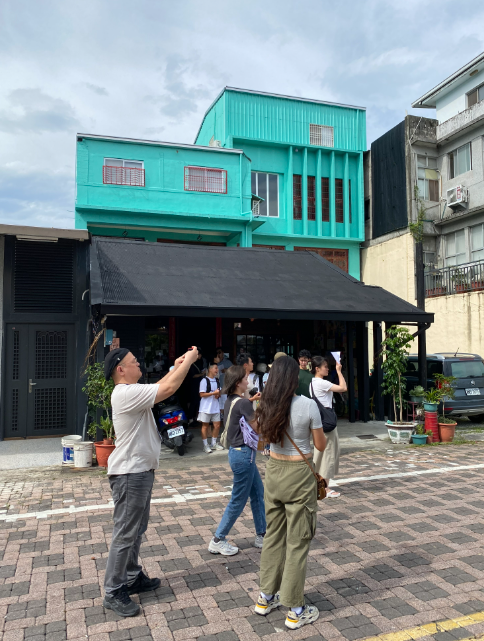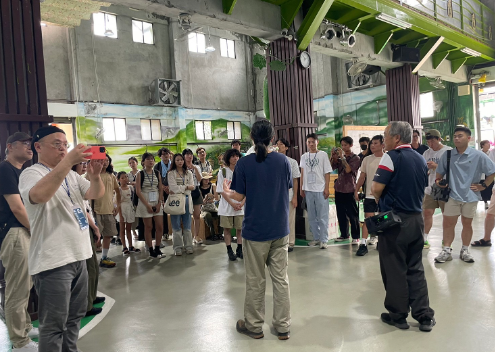Taiwan Tech Hosts International Workshop: Five Universities of East Asia Utilize Design Capability to Respond to Local Revitalization Needs
After a two-year hiatus due to the pandemic, the "East Asian Urban and Architectural Design International Workshop" resumed this August, hosted by Taiwan Tech. The cohort of participants comprises representatives from five distinguished institutions, such as Taiwan, Japan, South Korea, China, and Thailand. Departing from the norm, the host university, Taiwan Tech, led the team away from its affiliated city and chose Taitung's Guanshan Township as the design site. The aim was to immerse international students in the local culture of Guanshan, thereby encouraging them to break free from conventions and develop diverse architectural creative thinking.
For the past 17 years, the "East Asian Urban and Architectural Design International Workshop" has been organized sequentially by Taiwan Tech, Kanagawa University in Japan, Sungkyunkwan University in South Korea, Harbin Institute of Technology in China, and Thammasat University in Thailand. This year marked the workshop's return post-pandemic, highlighting the integration of global perspectives and local connections to create spatial design thinking for community engagement in Guanshan Township, promoting context-specific architectural design.

Hosted by Mr. Hao-Yu Chen from Guandian Studio, the intention behind the revitalization of old houses was explained to the participants of the international workshop.
The workshop organizer, Dr. Yi-Hsu Chiu, the director of the Department of Architecture at Taiwan Tech, believes in the concept of "the more local, the more international." Drawing inspiration from the developmental imperatives of Guanshan Township, the workshop focused on three major design areas: Guanshan Riverside Park, Migu School, and Guanshan Old Street. The overarching objective was to harness the impact of Guanshan's diverse culture to inspire innovative spatial design concepts from the multinational student teams.
Despite encountering disruptions from a typhoon during the workshop, the enthusiasm of the participants remained undiminished. Professor Yun-Hsiang Chiu mentioned that while Guanshan might be small, its culture is rich and varied. Through pre-workshop education and on-site exploration, many students already felt a strong connection to Guanshan. The collaboration between this international workshop and Taiwan Tech's University Social Responsibility (USR) project is historic, as it relocated a 50-person international design workshop to Guanshan, underscoring the potential of the township itself.
Professor Yun-Hsiang Chiu and architectural history scholar Dr. Zhen-Shan Wang jointly led the international workshop, providing explanations in English throughout. Important buildings and cases of revitalizing old houses, such as the Guanshan Township Railway Station's former stationmaster's residence, the old train station, Fusheng Hall, Xinsheng Guesthouse's vestiges, Huang House, and the police station, were covered during the workshop, allowing participants to gain insight into Guanshan's historical and cultural background.

Dr. Wang Zhen-Shan provided an exposition on the architectural heritage of the old Guanshan Railway Station to the participants of the international workshop.
Professor Yamaie of Kanagawa University in Japan highlighted a shared challenge between Japanese towns and Taiwan: the revitalization of existing spaces to offer platforms for the younger generation's creative expression. This issue, he emphasized, is a common concern for architects in both Japan and Taiwan.
Professor Lee from Sungkyunkwan University in South Korea, whose childhood included a few years of residence in Taiwan due to his parent's diplomatic service, expressed that this was his first visit to Guanshan. He underscored that Taiwan's indigenous people's courage in confronting adversity during earlier times is a hero's narrative respected in Korean culture. He noted that the significance of site-specific memories is worthy of emphasis.

Professor Lee from Sungkyunkwan University led his students in meticulously documenting the urban landscape of Guanshan Township.
Taiwan Tech’s students, Yi-Zhang Li and Xin-Yuan Hong, who have established themselves as semi-local residents in Guanshan, took it upon themselves to assume the roles of local guides, aiding their international peers in comprehending the intricacies of the locale. Xin-Yuan Hong pointed out that this cross-cultural exchange has prompted profound introspection into the symbiotic relationship between architecture and locale, fostering a sense of inextricable emotional connection. This experience has propelled him to contemplate strategies for perpetuating the historical continuum of Guanshan while amplifying its indigenous characteristics, thereby positioning the township as a cornerstone for industrial revitalization.
Principal Yan-Fang Peng of Migu School personally delineated the core values underpinning the institution's agri-food education and expounded upon the innovative transformation of the derelict granary structure into an exuberant emblem of Guanshan Township. Employing a reductionist approach and grounding the endeavor in an agricultural lifecycle perspective, the conversion resonates as a vibrant beacon. The workshop participants were notably intrigued by the multifaceted spatial utilization strategies of Migu School.
Taiwan Tech’s alumni, Zi-Qin Tsai, and the outgoing director Zheng-Liang Liu of the Department of Industrial and Commercial Architecture at Guanshan, wholeheartedly joined the proceedings. Mayor Cheng-Feng Peng expressed his profound gratitude for the workshop participants' deep affection for Guanshan. He remains optimistic that with the cumulative efforts of a growing cohort, Guanshan's former glory will indeed be rekindled.

Principal Yan-Fang Peng of Migu School also engaged in a candid exchange with the international workshop attendees, sharing insights into the regeneration of the old rice granary space.




